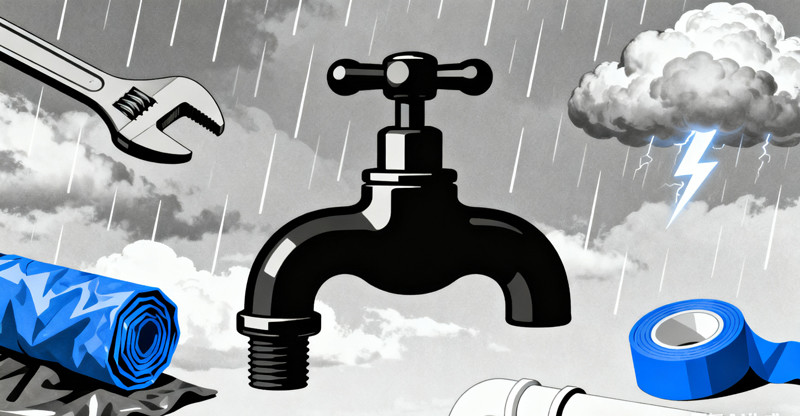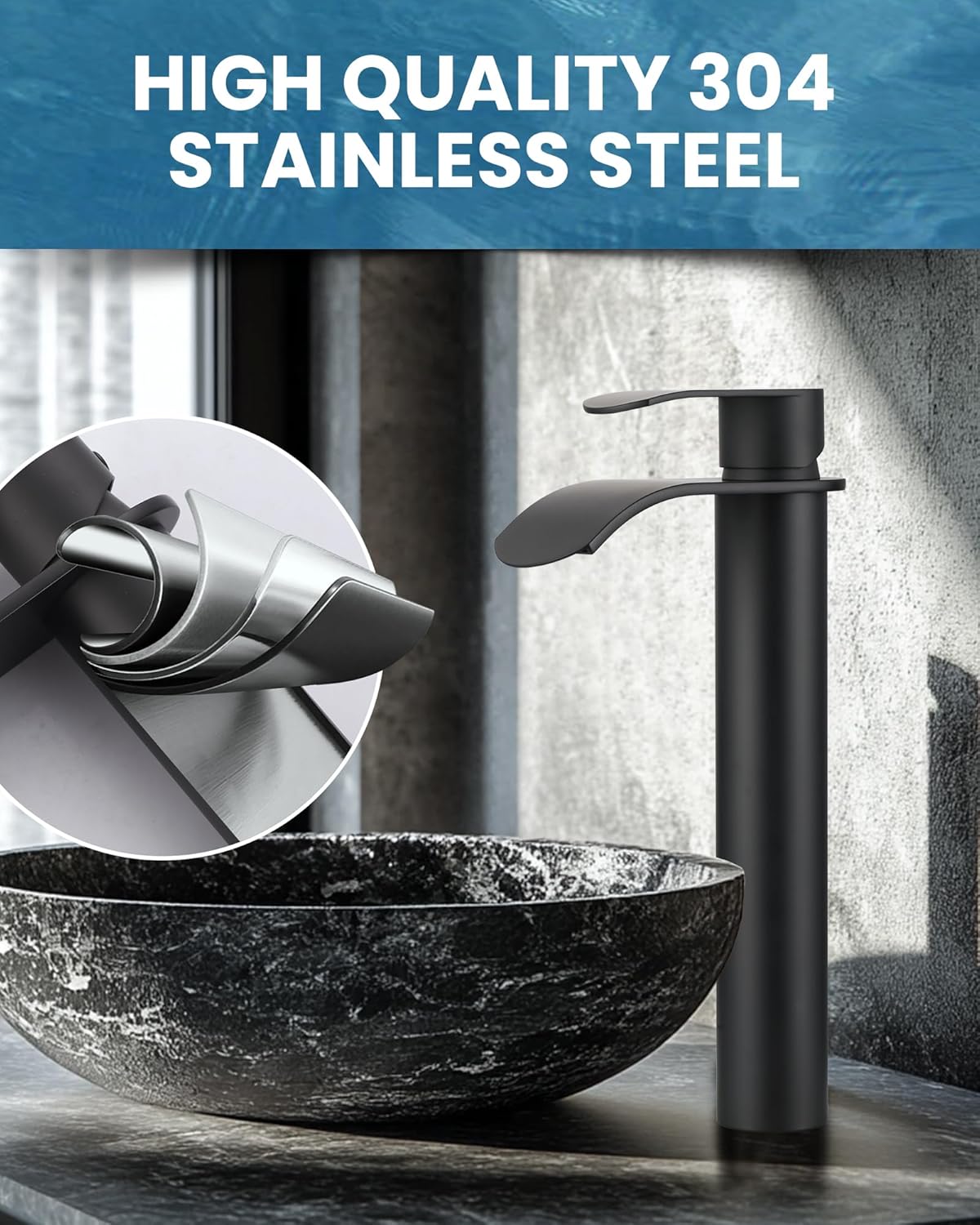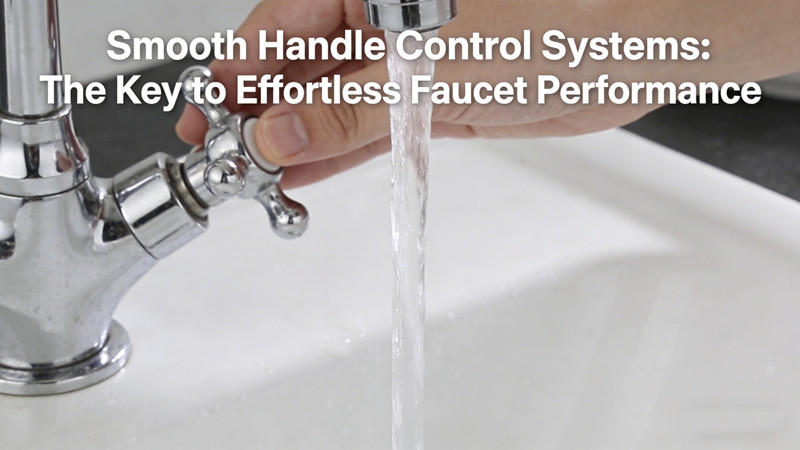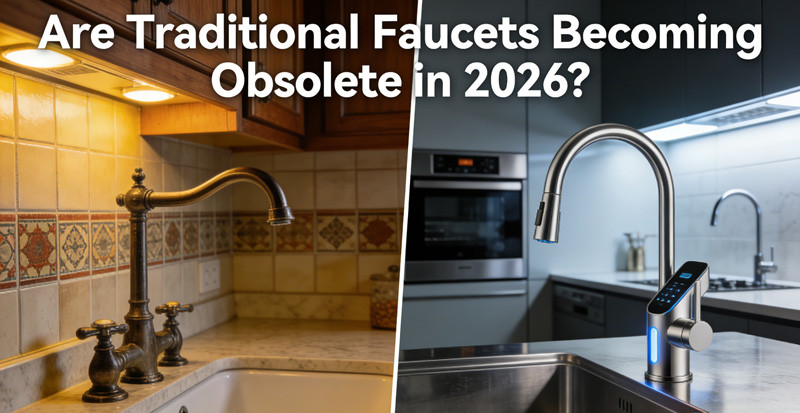When people think of hurricane preparedness, they usually focus on boarding up windows, securing outdoor furniture, and stocking up on emergency supplies. While these are essential steps, many homeowners forget about one of the most important systems in their homes: plumbing. In particular, faucets—both indoors and outdoors—need attention before a storm hits. Taking time to prepare your faucets for hurricane season can help protect your water supply, prevent costly damage, and ensure your household has access to clean water during and after the storm.
Why Faucets Matter During a Hurricane
Faucets might seem like small, everyday fixtures, but they play a crucial role in storm preparedness. Hurricanes often bring flooding, power outages, and interruptions to municipal water systems. Your faucets serve as the access point to your home’s water supply, which can be compromised if not properly secured.
Some of the risks hurricanes pose to faucets include:
- Backflow contamination: Floodwater can enter plumbing systems if faucets and drains are not properly protected.
- Pipe damage: Sudden pressure changes and debris can strain plumbing lines connected to faucets.
- Loss of clean water: Without preparation, you may run out of potable water if the municipal supply shuts down.
- Exterior damage: Outdoor faucets are vulnerable to high winds, flying debris, and water infiltration.
By preparing ahead of time, you can minimize these risks and ensure that your faucets continue to function when you need them most.
Step 1: Inspect Faucets Before Hurricane Season
The first step in faucet preparedness is a thorough inspection. Look for leaks, loose connections, corrosion, or damage around faucet bases. A leaky faucet might not seem serious, but during a storm, even minor issues can worsen and allow contaminated water into your system.
- Check indoor faucets for drips, rust, and proper water flow.
- Inspect outdoor spigots for cracks, rust, or loose handles.
- Examine connections under sinks to ensure there are no leaks in supply lines.
Fixing small problems now prevents bigger headaches later.
Step 2: Protect Outdoor Faucets
Outdoor faucets are among the most vulnerable fixtures during a hurricane. Exposed to wind, rain, and debris, they can quickly become damaged or allow floodwater into your plumbing system.
- Shut off the outdoor water supply if your home has a separate shutoff valve for exterior spigots.
- Install backflow preventers to stop contaminated floodwater from entering your pipes.
- Cover faucets with insulated protectors or heavy-duty plastic to shield them from debris and water intrusion.
- Remove hoses and attachments, which can act like sails in high winds and cause damage.
These simple steps can prevent both physical damage and contamination.
Step 3: Store Emergency Water Supplies
One of the most important things you can do with your faucets before a hurricane is to use them to store emergency water. When a storm is imminent, there’s always a risk that water supplies will be cut off or contaminated.
- Fill bathtubs, sinks, and large containers with clean water for sanitation and flushing toilets.
- Fill clean, sealable bottles or jugs for drinking water.
- Label and store containers in a cool, dry place.
The general recommendation is to store at least one gallon of water per person per day for at least three days. Your faucets give you direct access to safe water before the storm arrives, so take advantage of it.
Step 4: Install Aerator Screens and Filters
During hurricane season, even if your faucets aren’t physically damaged, water quality can be affected by heavy rainfall, flooding, or damaged treatment facilities. Installing filters and screens on your faucets can provide an extra layer of protection.
- Aerator screens help trap debris and sediment that may enter the system.
- Faucet-mounted water filters can improve water safety if contamination occurs.
- Replace or clean filters regularly to maintain effectiveness.
This is especially important for households with children, elderly family members, or anyone with a compromised immune system.
Step 5: Secure Indoor Faucets Against Power Outages
Power outages during hurricanes can disrupt water pressure and cause plumbing systems to behave unpredictably. In some cases, faucets may sputter, release air, or backflow if the system loses pressure.
- Turn off faucets when not in use to prevent leaks or flooding when water pressure returns.
- Keep sink drains covered to reduce the risk of backflow during heavy flooding.
- Locate your main water shutoff valve so you can quickly stop water flow in an emergency.
By being proactive, you’ll prevent unexpected damage when the water system fluctuates.
Step 6: Prepare Faucets After the Storm
Faucet preparation doesn’t end when the hurricane passes. Once it’s safe, you’ll need to carefully check your faucets before using them again.
- Run faucets for several minutes to flush out stagnant or potentially contaminated water.
- Check aerators for debris and clean them before regular use.
- Disinfect faucet spouts with a diluted bleach solution if flooding occurred.
- Test water quality before drinking—boil water if local authorities issue an advisory.
This post-storm routine ensures that your faucets remain safe to use and helps restore confidence in your home’s water system.
Extra Tips for Faucet Hurricane Preparedness
- Upgrade old faucets: Modern designs often include features like built-in backflow preventers and easy-clean surfaces that improve resilience.
- Bundle faucet prep with general plumbing prep: When you’re securing your home’s plumbing lines, don’t forget faucets as the most visible access points.
- Work with professionals: A plumber can install shutoff valves, check for vulnerabilities, and help safeguard your water system before hurricane season.
Conclusion
Preparing your faucets for hurricane season may not be the first thing on your checklist, but it’s a step that can make a huge difference. From preventing contamination to ensuring a backup water supply, your faucets are essential in storm readiness. By inspecting fixtures, protecting outdoor spigots, storing emergency water, and following safety steps before and after the storm, you’ll strengthen your home’s resilience against hurricanes.
When the winds pick up and the rain starts to fall, peace of mind comes from knowing you’ve taken care of even the small details—like faucets—that play a big role in keeping your household safe and prepared.
 WOWOW Faucets
WOWOW Faucets






